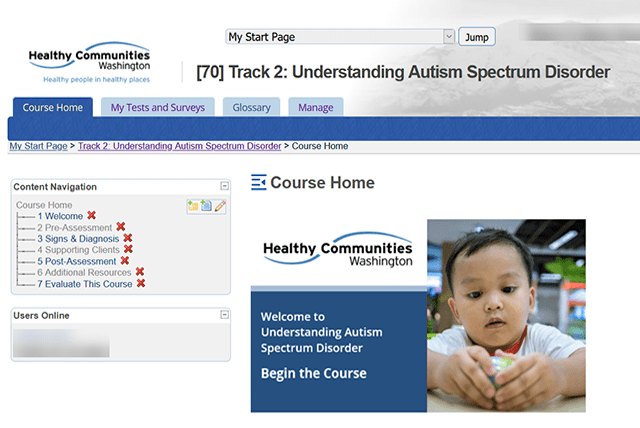Dress rehearsals can prevent some disasters on opening night.
Because anything can happen when you’ve worked so hard on a big production, and you want to make sure that all the kinks are out before released to a big audience.
And to make that dress rehearsal go as smoothly as possible, you need all the actors to show up and do their job correctly.
The same holds true for anyone who has worked on developing a course: you’ll need to test what you’ve done before you open it to a wider audience. Plus, you’ll need everyone who helps with the testing (sometimes called “beta testing” or “piloting”) to be the best they can be.
That’s why you should look out for those situations that can ruin your big night and then look for the best person to help.
First, let’s define course beta testing.
What Is Course Beta Testing
A beta test is essentially a scaled-down rehearsal of your training that is started before the official launch of the program. This testing process can uncover valuable information regarding user experience, content suitability, and presentation styles. Moreover, it can provide a deeper understanding of the overall process, including the engagement level of the course, instructor performance, and whether the difficulty level is appropriate for the participants.
A beta tester is a person or people who will go through the entire course as it’s intended and give you feedback on what worked and—more importantly—what didn’t. They are usually a facilitator or instructor and people who take the course as learners.
Now let’s look at what can cause a less-than-perfect result of your beta test.
When Beta Testing Doesn’t Work
In short, beta testing fails when there’s a lack of communication. These could be:
- A failure of communication between you or other administrators with the testers
- No communication between administrators who should be preparing the testing event
- A lack of communication among the main tester, such as a course facilitator, and participants.
The Testing Team Must Be Prepared
When there’s a failure to communicate among administrators, the process is doomed before it begins. And failure at this early stage means that the course itself could have a poor outcome.
Administrators need to be organized. If administrators aren’t organized, they won’t be able to adequately manage the testing process. The outcome could be anything from a delayed schedule to more critical issues like missing big issues in the course that need special attention.
Have a clear plan for feedback. A testing plan including criteria for success is essential for a beta test. This will need to be specific to your course, but a few things to include in your pilot are:
- Schedule that includes everyone in the project, from administrators to developers to participants
- Fleshed-out course evaluation
- A way to collect errors or areas for improvement
This means that the whole program needs to carefully prepare for the test and that everyone knows what to do. You can read more about how to assemble a pilot program for your online learning here.
The Testing Team Must Be Uncommitted
Assuming you have a clear plan and have communicated it with everyone on the team, now the team members need to abide by that plan.
For example, if the team doesn’t follow the schedule, it could not only cause delays, but it could mean that some team members are working at the same time as others and could write over information or not collect vital information.
The facilitator needs to be completely engaged in the process because as soon as the course launches, they’re in charge of the process. Without commitment, the mood will leak into the participants. They will lack motivation and won’t engage. They might be confused about what to do and not be able to participate fully.
And it could cause a negative perception of your institution.
Avoid all these bad mistakes. Focus on improving communication for your course, preparing at each step, and making sure you recruit the best person to facilitate.
Here’s how.
Step 1. Set Clear Expectations for the Course Test Team
The quickest way to succeed in your pilot test is to set clear expectations from the start. Meet with your team to determine what these should be. In general, they will follow something like this:
- Review course content (including all images, videos and readings) for accuracy and consistency
- Complete graded and ungraded assessment exercises (including forum discussions, assessments or hand-in assignments) to ensure accuracy
- Provide clear and actionable feedback on course content and assessments
- Communicate regularly with program leaders, project managers and other stakeholders
Step 2: Recruit for the Strongest Skills
When you recruit your beta testing team, look for the right people. You can use this as a checklist for people to participate:
- Strong time management skills
- Ability to work independently
- Good organization skills
- Strong written and verbal skills in the target language
- Enthusiasm for learning new systems
- Good problem-solving skills
You should also want to look for people who have domain knowledge that makes sense for the course. This could be people who know the right kind of software or learning management system for an online course. Or it could be people who are subject matter experts and can provide feedback on the content from a more in-depth level.
Conclusion
Beta testing for courses is a fantastic practice.
The only problem is, it’s often not executed well, and it doesn’t yield the results you want.
The best ways to guarantee results from your pilot program are to prepare from the start, make sure connection happens on all levels and recruit the best people to participate.
With a little bit of preparation, aligning your program to your testing team becomes much easier. That way, your learners and your agency will benefit from your big production when it’s time for opening night.
We have built our company around helping agencies understand the needs of learners. Our needs assessment process helps managers and administrators build the right remote training program.
If your team needs a training needs assessment, book a consultation and our experts will provide valuable resources to help you achieve success.



